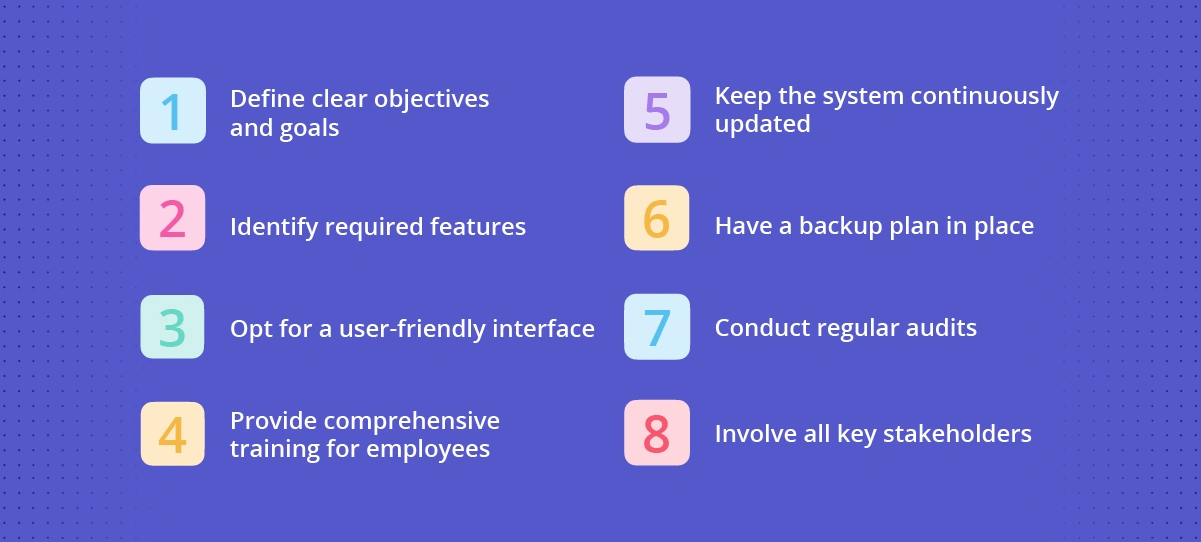The rapid evolution of digital technology has ushered in an era of intelligent systems, one of which is the call center knowledge management system. With 77% of call centers focusing on investing in a call center knowledge management system and 87% planning to improve their knowledge management system to boost performance by empowering agents with the information they need to handle complex customer interactions, it is emerging as an indispensable asset to call centers worldwide. Bridging gaps between customer service, information storage, and employees in call centers, it forms a critical part of customer relationship management.
What is a call center knowledge management system
A call center knowledge management system (KMS) acts as a vital support mechanism within a call center operation. Designed to consolidate and organize vital data, the knowledge management system for call centers aids in refining customer service efficiency and proficiency thereby enhancing customer satisfaction.
Yet, the call center knowledge management system is not merely a repository of information. Its functionalities extend to dynamic knowledge creation and application, making it a powerhouse of intelligence. Features may incorporate automation such as artificial intelligence, delivering predictive content, and escalating agent productivity.
By collating relevant data and information from different sources and analyzing it, the system provides precise, accurate, and speedier solutions to customer inquiries. It supports the general mantra in call centers of responding to customer needs swiftly and efficiently.
Thus, a call center knowledge management system is an instrumental tool for any industry, from financial services to retail. It's a sophisticated tool that refines and delivers different types of knowledge in a manner that is accessible and relevant. Its intelligent application serves to fortify the call center's most critical offering— superior, efficient customer service.
It comes bristling with the following benefits:
- Improves employee productivity
- Enhances customer relationships
- Provides accurate answers
- Promotes consistency in customer service responses
- Minimizes the risk of misinformation
- Ensures every agent has access to the same, comprehensive sources of knowledge
- Saves time and effort for both agents and customers
- Ensures customer queries are resolved by the first contact
- Reduces call wait times
- Leads to cost savings and an improvement in customer satisfaction ratings
The system also offers employees a platform to share knowledge, learning, and experiences, thereby increasing teamwork and a shared sense of responsibility. The result is improved efficiency, employee satisfaction, and a boost in the overall productivity of the call center.
Running parallel to its benefits, the functionalities of call center knowledge management systems are equally impressive:
- Garners and stores vast swaths of data, offering an endless knowledge base for employees to tap into. From browsing histories, customer profile data, to feedback and queries, every piece of information is stored for retrieval when needed.
- Artificial intelligence-powered components help in predictive analysis, shaping future customer engagement strategies.
- Increased personalization, understanding, and recording each customer's preferences, improving customer interaction quality.
- It provides a robust analytics suite, offering actionable insights to call center managers for better decision-making.
In essence, knowledge management acts as an informational repository and a catalyst for customer satisfaction, employee efficacy, and call center productivity. As trends evolve and customer expectations rise, the system proves to be resilient, adaptable, and indispensable, impressively ticking off prerequisites for call center success. A meticulous understanding and the right execution tactics of this system will undeniably multiply the growth trajectory for call centers worldwide.
The importance of a knowledge management system in a call center
The significance of a knowledge management system in a call center cannot be overstated. With 40% of customers wanting to receive a response in 5 minutes or less and most call centers focusing on answering 80% of the calls they receive in under 20 seconds, a comprehensive knowledge management system becomes the vital roadmap for agents to provide accurate, quick assistance.
A primary function of a knowledge management system is to enhance efficiency. It does so by reducing the time agents spend searching for information to handle customer inquiries, thereby shortening average handle time (AHT). As a centralized repository, it offers a singular point of reference, subverting redundancy, and minimizing confusion that can stem from multiple information sources. This direct access to structured and categorized information contributes to first call resolution (FCR) rates, boosting customer satisfaction and fostering confidence among agents.
A well-implemented knowledge management system also prefers quality over quantity by reducing errors and keeping agents updated with the most accurate information. It serves as the backbone of a call center, supporting agents with relevant data, scripts, or guidelines, thus aiding in query resolution and reducing escalations to higher authority levels. Consequently, such systems profoundly enhance an agent's competence, translating into a superior customer experience.
Knowledge management systems equally serve customers via self-service portals, empowering them with information to resolve commonplace issues independently. This is particularly beneficial when call volumes are high or during off-peak hours.
Call center knowledge management system challenges
85% of call centers state that some issue related to knowledge management is their biggest barrier to delivering good customer service, making a call center knowledge management system is an integral platform for any customer service-centric organization designed to optimize and streamline information flow.
This system provides a centralized avenue for customer service representatives to access a trove of company-specific knowledge, information and resources, reducing the time spent "on-hold" and enhancing the customer service experience. Encompassing a wide range of functionalities, these systems support the creation, sharing, and application of knowledge within a call center to improve efficiency, elevate the level of service, and boost overall productivity.
However, while leveraging call center knowledge management systems can open a path to success in customer service, they present several challenges to the organizations.
Aligning with call center operational goals
The first challenge lies in the successful implementation and alignment of the knowledge management system with the call center's broader operational goals. Without this strategic alignment, the system may not deliver improvements in service quality or operational efficiency as anticipated.
Maintaining accuracy of information
The second challenge revolves around maintaining the accuracy and relevance of knowledge within the system. In fast-paced industries, knowledge and information can quickly become outdated. As such, there is a continuous need for effective knowledge updating and revising procedures within the organization, which may be resource-intensive and time-consuming.
Overcoming resistance to change
Lastly, a significant challenge is to overcome resistance to change. Deploying a knowledge management system often necessitates shifts in business procedures, job roles, and work habits which some staff may resist. Training, communication, and careful change management are essential to minimize resistance and promote the adoption of the new system.
Navigating these challenges requires strategic knowledge management planning, adoption of best practices and constant system refinement. By overcoming these barriers, organizations can unlock the full potential of their call center knowledge management systems and drive improvements in customer satisfaction and operational efficiency.
Best practices for implementing a call center knowledge management system
Dispensing with the paramount benefits and functionalities of a call center knowledge management system, its efficient employment is just as important. Best practices start with a clear set-up and design that matches the call center's requirements. The system needs to be user-friendly and intuitive; after all, the aim is to streamline operations, not complicate them. An ideal system should prioritize key features, such as search functionality, the ability to store and update data, collaboration tools, and critical analytics.
Now, let's delve into the best practices for implementing a call center knowledge management system.

Clear objectives
Establishing clear objectives and goals for implementing the knowledge management system is crucial. It ensures that the system aligns with the overarching business objectives, such as improving customer satisfaction, reducing resolution times, or enhancing employee productivity. Without clear objectives, the implementation may lack direction and fail to deliver the desired outcomes.
Required features
Identify the specific features and functionalities that are essential for your call center operations. This could include features like a robust search function, integration with existing CRM systems, customizable knowledge bases, version control, and analytics capabilities. Investing in a system that aligns with your unique requirements ensures maximum utility and efficiency.
User-friendly interface
Opt for a knowledge management system with an intuitive and user-friendly interface. A system that is easy to navigate and use encourages adoption among call center agents and other staff members. Training time is reduced, and employees are more likely to engage with the system, leading to better utilization of knowledge resources and improved performance metrics.
Employee training
Provide comprehensive training to all employees on how to effectively use the knowledge management system. Training should cover not only basic functionalities but also best practices for knowledge sharing, content creation, and updating. Well-trained employees are more confident and proficient in utilizing the system, leading to better customer service and problem resolution.
Continuous updating
Ensure that the knowledge management system is regularly updated with current and relevant information. This includes updates to product/service offerings, FAQs, troubleshooting guides, and customer feedback. Regular updates help to maintain the accuracy and usefulness of the knowledge base, enabling call center agents to provide timely and accurate assistance to customers.
Back-up plan
Develop a contingency plan to mitigate disruptions in case of system downtime or failures. This may involve implementing redundant systems, utilizing cloud-based backups, or establishing alternative communication channels. A well-prepared plan ensures minimal interruptions to call center operations and maintains business continuity during unforeseen circumstances.
Regular audits
Conduct periodic audits and performance reviews of the knowledge management system to ensure optimal functionality and usability. Audits can help identify areas for improvement, such as outdated information, usability issues, or training gaps. By regularly assessing the system's performance, you can address any issues promptly and optimize its effectiveness.
Stakeholder engagement
Involve key stakeholders, including call center managers, IT personnel, frontline staff, and end-users, throughout the implementation process. Solicit feedback, address concerns, and encourage collaboration to ensure that the knowledge management system meets the needs of all stakeholders. By fostering stakeholder engagement, you can increase buy-in, support, and cooperation, leading to a more successful implementation and adoption.
Smooth implementation of a call center knowledge management system is achieved through meaningful training and consistent maintenance initiatives. Staff must be trained to interpret the available data correctly and utilize it for strategic decision-making purposes. Long-term maintenance of efficiency and usability of the system is essential and can only be ensured through regular updating and continuous monitoring, auditing, and adjusting the system's operations based on evolving business and market conditions.
Implementing a knowledge management system in a call center is no small feat. But, with these best practices in mind, organizations can streamline their operations, improve their efficiency, and provide excellent customer service. It's a win-win situation for all involved.
Getting started with a call center knowledge management system
The numerous benefits of a call center knowledge management system are notably significant. Such a system can reduce call handling times, standardize responses to customer queries, simplify case resolution, and improve agent productivity. It provides agents with quick and easy access to a wealth of knowledge, enabling them to resolve customer queries efficiently and effectively.
Furthermore, the functionalities of a call center knowledge management system facilitate optimal utilization of internal resources and improve overall operational efficiency. It allows for info capturing, categorizing, storing, and retrieval, contributes to the creation and management of training materials, facilitates information sharing, streamlines compliance tracking, and even enhances the monitoring of customer interactions.
A call center knowledge management system is an integral tool in enhancing efficiency and service delivery in a call center environment. This system serves as a repository of information relevant to the operations of a call center, making it invaluable for communication and performance tracking within the department. With a robust knowledge management system in place, call centers are equipped to maintain exemplary standards of customer service and engagement, improve operational processes, enhance team collaboration, and gain a competitive edge.
Visit our contact center industry solution page to learn how you can reduce escalations, boost average handle time (AHT), accelerate training time, and improve operating costs by giving new agents the call center knowledge management system they need to independently assist customers with confidence.



